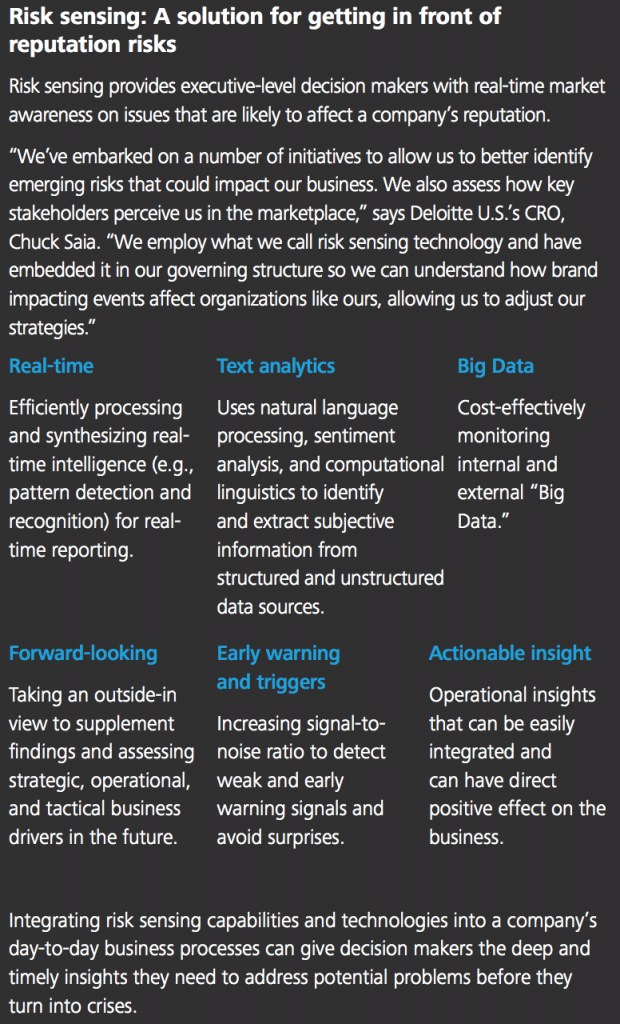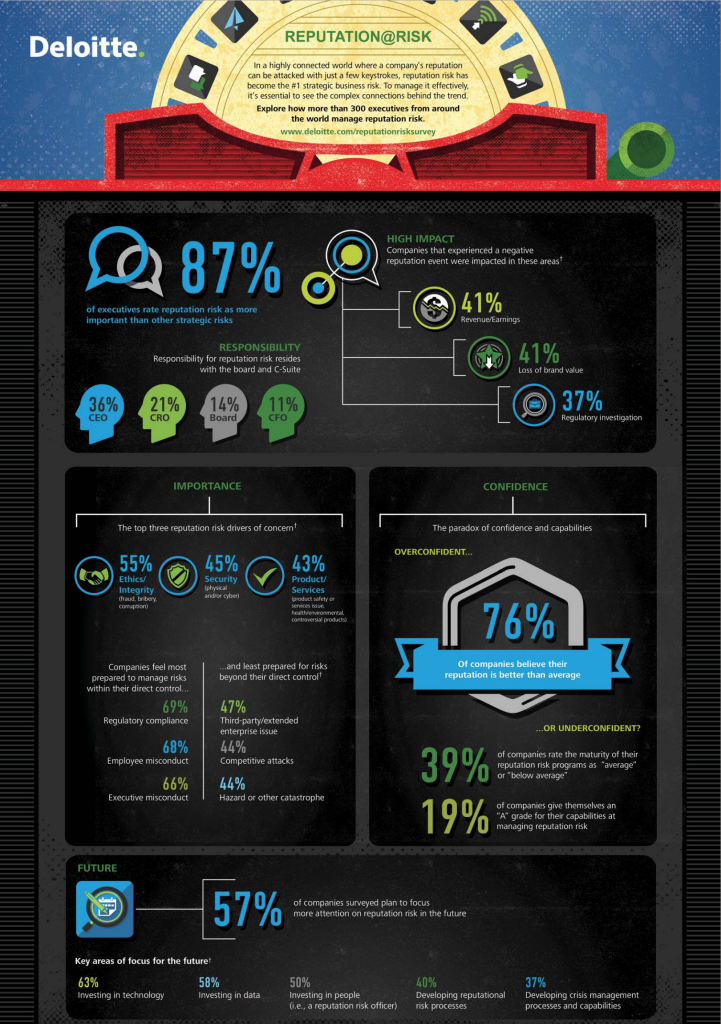Of executives surveyed, 87% rate reputation risk as either more important or much more important than any other strategic risks their companies face, according to a new study from Forbes Insights and Deloitte Touche Tohmatsu Limited. Further, 88% say their companies are explicitly focusing on managing reputation risk.
Yet a bevy of factors contribute to reputation risk, making monitoring and mitigating the dangers seem particularly unwieldy. These include business decisions and performance in the following areas:
Financial performance: Shareholders, investors, lenders, and many other stakeholders consider financial performance when assessing a firm’s reputation.
Quality: An organization’s willingness to adhere to quality standards goes a long way to enhancing its reputation. Product defects and recalls have an adverse impact.
Innovation: Firms that differentiate themselves from their competitors through innovative processes and unique/niche products tend to have strong name recognition and high reputation value.
Ethics and integrity: Firms with strong ethical policies are more trustworthy in the eyes of stakeholders.
Crisis response: Stakeholders keep a close eye on how a company responds to difficult situations. Any action during a crisis can ultimately affect the company’s reputation.
Safety: Strong safety policies affirm that safety and risk management are top strategic priorities for the company, building trust, and value creation.
Corporate social responsibility: Actively promoting sound environmental management and social responsibility programs helps create a reputation “safety net” that reduces risk.
Security: Strong infrastructure to defend against physical and cybersecurity threats helps avoid security breaches that could damage a company’s reputation.
But brand crises make headlines with increasing frequency, and companies are laying responsibility at the feet of the C-suite, particularly chief risk officers. Deloitte reports that respondents considered the primary responsibility to rest with: the chief executive officer (36%), chief risk officer (21%), board of directors (14%), or chief financial officer (11%).
What can they do? The study offered these key points to consider when crafting a crisis management plan:
- Don’t wait until a crisis hits to get ready. Monitoring, preparation and rehearsal are the most effective ways to get ready for a crisis event. Organizations that can plan and rehearse potential crisis scenarios should be better positioned to respond effectively when a crisis actually hits.
- Every decision during a major crisis can affect stakeholder value. Reputation risks destroy value more quickly than operational risks.
- Response times should be in minutes, not hours or days. Teams on the ground need to take control, lead with flexibility, make decisions with less-than-perfect information, communicate well internally and externally, and inspire confidence. This often requires outside-the-box thinking and innovation.
- You can emerge stronger. Almost every crisis creates opportunities for companies to rebound. However, those opportunities will surface only if you’re looking for them.
- When a crisis seems like it’s over, it’s not. The work goes on long after you breathe a sigh of relief. The way you capture and manage data, log decisions, manage finances, handle insurance claims, and meet legal requirements on the road back to normality can determine how strongly you recover.
But the real objective should be preventing these potential crises to begin with. Deloitte recommends exploring the possibilities of “risk sensing” – using real-time data to monitor the issues that might impact a company’s reputation:
Check out the infographic below for more insights from the Deloitte Reputation@Risk survey:



Great infographic here! It’s so important to understand the warning signs of your reputation becoming at risk so that actions can be taken as quickly as possible. Thanks for sharing!